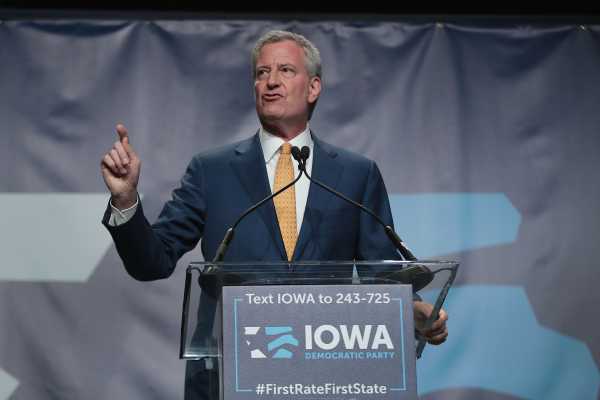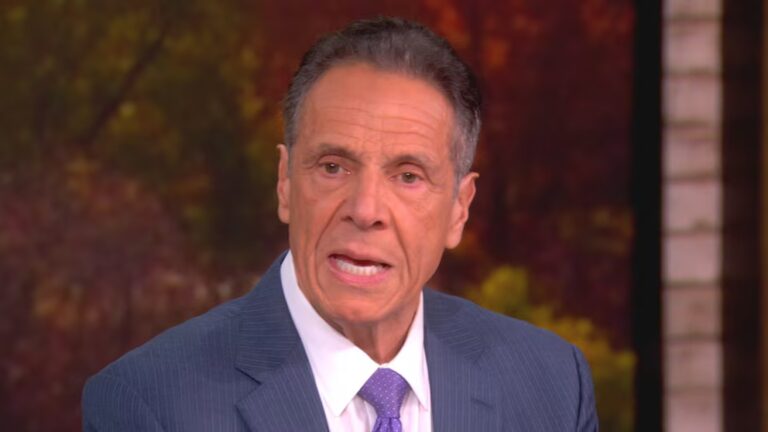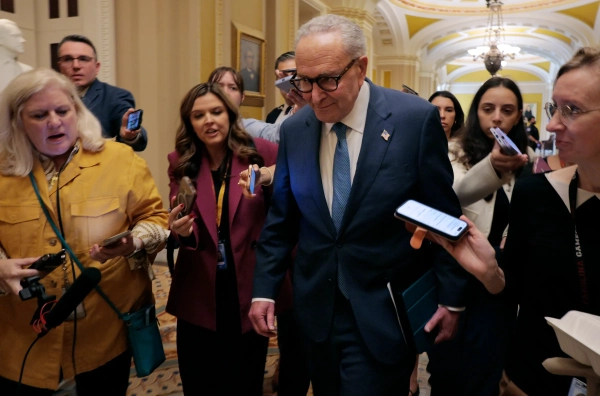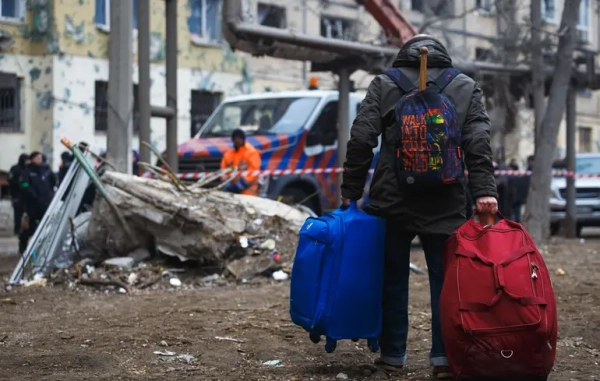
New York City mayor and 2020 Democratic presidential candidate Bill de Blasio was campaigning in Iowa as 72,000 of his city’s residents experienced a massive blackout that left the West Side of Manhattan in the dark Saturday. During and after the blackout, the presidential contender faced criticism from his constituents and fellow politicians for being out of town during a major emergency.
New York Governor Andrew Cuomo, who led the city’s response and outreach efforts in de Blasio’s absence alongside New York City Council Speaker Corey Johnson, was particularly pointed in his criticism.
“Look, mayors are important and situations like this come up, you know and you have to be on site,” Cuomo said. “I’ve been governor of New York for eight years. In that time I can count the number of times I left the state on my fingers.”
The mayor defended his visit to Iowa on CNN’s State of the Union Sunday, saying, “When you’re a mayor or governor, you’re going to travel for variety of reasons. The important thing is to have the hand on the wheel, make sure things are moving effectively, and communicate to people.”
De Blasio went on to say he was confident in the team he had in place in New York. In fact, he initially hesitated to return to his city to deal with the situation in person.
“I’m going to get more information in the next hour or so, and we’ll adjust my schedule accordingly depending on what I hear,” he said Saturday evening.
Ultimately, de Blasio chose to return to New York; however, by the time he arrived, power had been mostly restored, and many residents were troubled by his absence.
In a tweet that mirrored those of many New Yorkers, journalist Janet Shan thanked the politicians who were in the city for managing the crisis while de Blasio was “busy talking to a very, very small number of people in Iowa.”
Authorities with electricity provider Con-Edison believe the blackout was caused by a fire that began to affect the grid Saturday evening. The outage affected only the borough of Manhattan, although subway trains were also impacted; some riders were temporarily stranded underground and service was cancelled in other parts of the city.
Some of New York City’s largest tourist draws including Times Square, Rockefeller Center, and Broadway all went dark, which led to some unique outdoor performances outside Carnegie Hall and Broadway theaters.
Facing dead traffic lights, residents took it upon themselves to direct traffic:
No injuries were reported during the blackout, which happened on the 42nd anniversary of the 1977 New York City blackout that left most of the city without power. Both de Blasio and Cuomo called for an investigation into what caused the outage, and said steps must be taken to ensure further blackouts do not occur.
The blackout puts a spotlight on de Blasio’s leadership as raises his national profile
The emergency caught de Blasio at a time when he’s struggling to improve his standings in a crowded Democratic presidential primary field.
Since entering the Democratic race in May, de Blasio has polled poorly among primary voters, barely qualifying for the first primary debate in June. In Morning Consult’s most recent primary poll, de Blasio had 1 percent support; he had consistently polled at this level of support since launching his candidacy.
His popularity in his home city isn’t much better — in an April Quinnipiac poll, 76 percent of New Yorkers said de Blasio shouldn’t run for president. As Vox’s Emily Stewart reported, despite his standing with New Yorkers, de Blasio sees himself as an underdog and has plowed ahead despite relative unpopularity:
Leaning so heavily on his experience as mayor of New York was always a tricky proposition for de Blasio. He has had some policy wins, including a universal pre-Kindergarten program, but his constituents don’t always speak highly of him. While another mayor in the 2020 race, South Bend, Indiana’s Pete Buttigieg, has worked to turn a crisis at home into a campaign talking point, de Blasio will not be able to do the same with his handling of the blackout.
Instead, it is likely to serve as yet another challenge the candidate must overcome as he seeks to acquire the public support and base of individual donors needed to appear in upcoming Democratic debates and to continue his bid for president.
Sourse: vox.com






